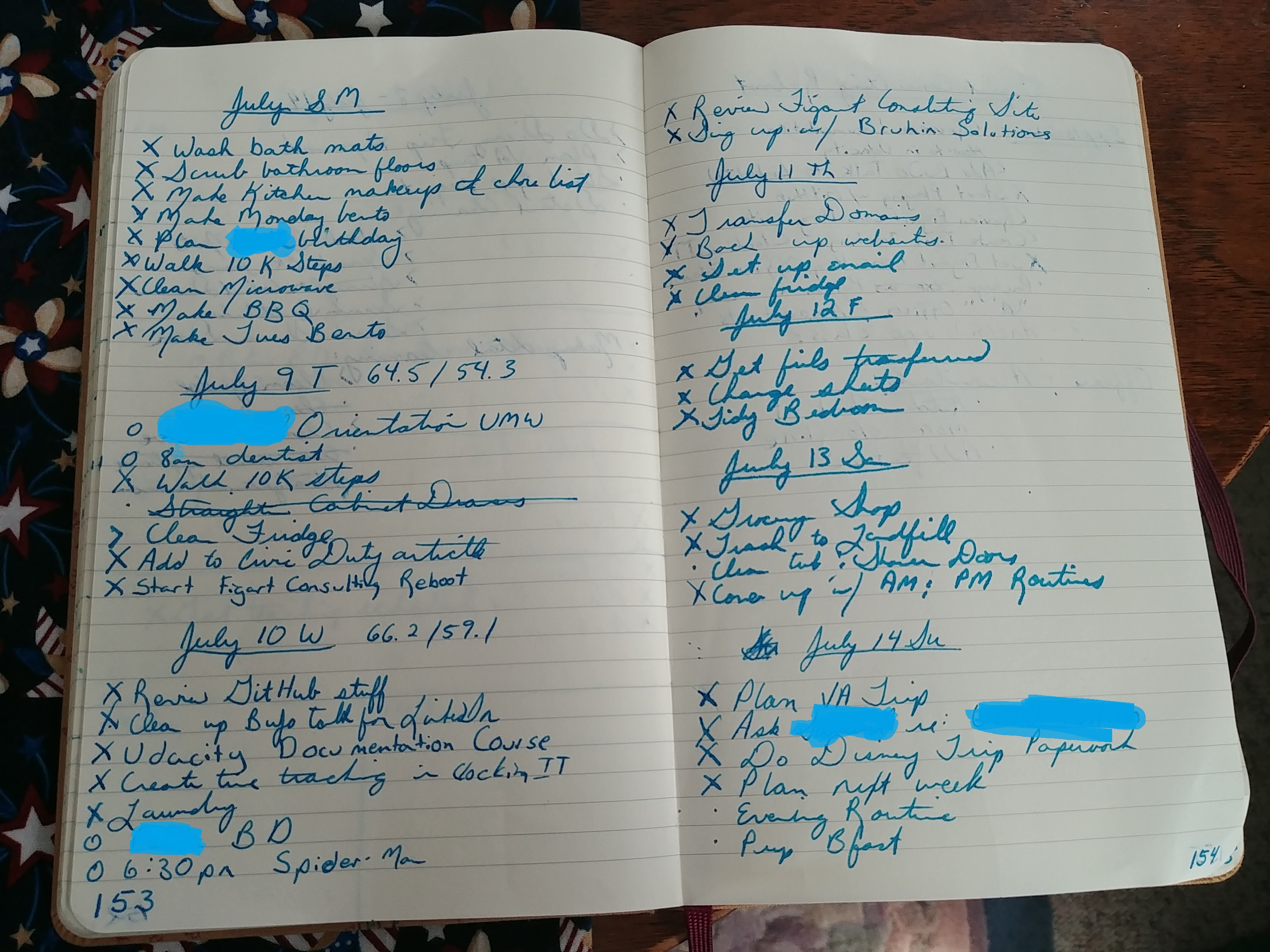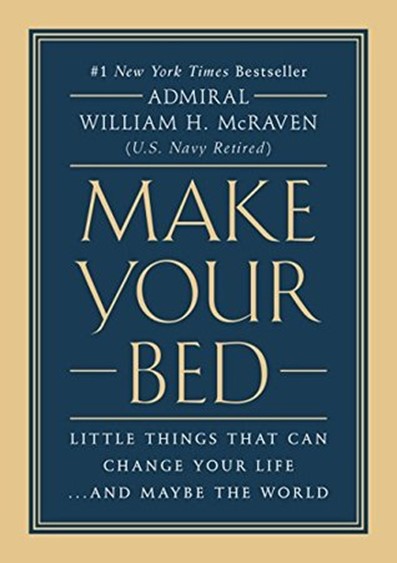
Being frantically busy isn’t the same thing as being productive.
This hit me hard last night when I migrated to a new Bullet Journal notebook last night. My old volume was full.
The migration process takes about an hour. It’s an hour that makes you think.
It was nice to review the notebook. I can get caught up in the day to day and forget what I’ve accomplished. The old Bullet Journals, especially when I am migrating to a new one, are an amazing way to review the past few months, take credit for what I did do as well as figure out where I’m falling down on doing what I want done.
As I was migrating, I noticed I’ve not been giving a project the attention it deserves as I was migrating different collections and projects from one notebook to the other. It got me to thinking about how important that project really was. Maybe I need to let it go.
Except…
I migrated the collection about that project. If I took the trouble
I love that clarity.
I joke, sometimes, that the Bullet Journal changed my life. It’s hilarious, but it did. It brought a lot of clarity to not only what I want, but how I actually spend my days.
I think it’s funny that this little system and notebook, so low-tech, has been so useful to me. I mean, I love gadgets. I love beepy reminders. I love all the new tech. I’m an early adopter as often as my purse allows. You wanna talk “sparking joy?” Tech is it for me.
But that notebook surpasses it all. The reality is that it works because I am not consistent. Some days I’m on the ball and focused. Other days, I am not on the ball at all. Most digital systems don’t seem to allow for the ebb and flow of my energy the way my Bullet Journal does. Most digital systems don’t allow for review, don’t allow for a reality check. You get a snapshot of the present and that’s it.
For all that, yes, living in the moment is a good thing, when your moment is full of self-reproach about how you’re letting your life drift away, or that you never see your family like you want to, being able to review and say, “Well, you took a trip to visit them SEVEN TIMES last year!” or “You completed that course, wrote those articles, sewed that dress, and helped your son out where he needed it” it helps as a reality check, not only for the
Tasks in Outlook don’t help with that. They don’t show the shape of your days as well. Remember the Milk might be amazing for scheduling recurring tasks. It’s not so great when Life Happens.
None of them really encourage things like taking notes on one’s vacation to remember the good times. I mean, sure, sure, I’m an enthusiastic diarist, but in terms of referencing what I’ve done from anything but an in-the-moment rant, the Bullet Journal has it over the things I write in my daily pages.
The biggest power of the Bullet Journal system for me is that things don’t fall through the cracks. It is amazing the amount of time one wastes being reactive and scrambling to catch up.
The problem is I’m so used to things falling through the cracks that I’m still not used to being on the ball to the degree I am now. You wouldn’t think that you’d have to overcome that sinking sensation of “I know I’m falling down and forgetting something” but if you’ve experienced it for forty-odd years, it’s like this weird hole when you realize that no, for the most part, you’re on top of things.
I’m still not used to it, which is, I suppose, why I write about
I will say that being used to being frantic might give you the illusion of being actively productive.
My Bullet Journal has proved that to be a stinkin’ lie.





 Yes. Yes, it is.
Yes. Yes, it is.


